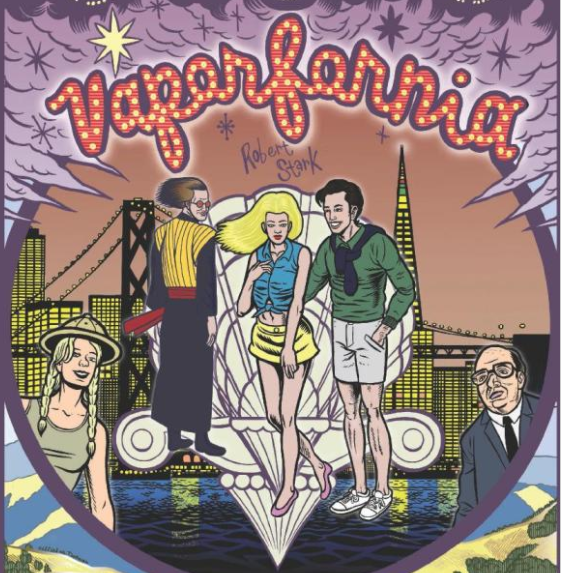Merle Haggard, Lou Reed, and Two Lost Billys
Earlier this year, I happened to be revisiting some of the classic material by Merle Haggard and Lou Reed when I was struck by the seeming interrelatedness of a pair of the artists’ respective songs: “Billy Overcame His Size”, featured on Haggard’s classic live album Okie from Muskogee (1969), and “Billy”, the closing track from Reed’s catchy, misanthropic masterpiece Sally Can’t Dance (1974).
Each song concerns the death, in one sense or another, of a character named Billy who meets his fate in Vietnam. Haggard’s inspiring Billy is an unusually small young man who “never made the football team”, and whose “sergeant laughed at his skinny frame”, but who “overcame his size” and “put pride in his daddy’s eyes / when he died to save those other men” in his unit.
Reed’s “Billy”, meanwhile, could hardly be more different in tone. “In high school he played football / And me, I didn’t do anything at all. / He made touchdowns while I played pool / And no one could figure out which one of us was the fool,” he adds. Billy, after studying medicine and becoming a doctor, “had to go. / But not me, I was mentally unfit, or so they say, so-so.” “When he came back, he wasn’t quite the same,” Reed relates. “He wasn’t the Billy I knew, it was like talking to a door”, some physical injury or psychological trauma having left his old friend lifeless inside. His demise, unlike the transcendent self-sacrifice of Haggard’s Billy, appears to be meaningless. Is the listener left to assume that Reed’s Billy, in his upright dedication and selflessness, turned out to be the fool, after all?
According to Bill Brown, author of Words and Guitar: A History of Lou Reed’s Music, “Lou Reed was not against war in general, or against the Vietnam War, but simply against Lou Reed getting injured or killed.” [1] He nonetheless describes “Billy” as “an antiwar song that got written, recorded and released at a time when both the war against Vietnam and the antiwar movement were ending” – too little, too late, Brown perhaps implies [2].
I can find no indication that Reed took an interest in Haggard’s music, but still I have to wonder if maybe Reed gave Okie from Muskogee a listen and if perhaps it percolated through the filter of his mind until Reed, consciously or not, felt inspired to write an answer to “Billy Overcame His Size”, with the elements of football, a high school friend, and Vietnam carrying over from Haggard’s song.
Also seeming to provoke comparison with Haggard’s hawkish and socially conservative efforts is Reed’s narrator’s admission in “Billy” that “I studied foliage”, i.e., smoked weed. “We don’t smoke marijuana in Muskogee,” Haggard conversely declares in the opening line of “Okie from Muskogee”. “Football’s still the roughest thing on campus” in Haggard’s idyllic redneck college town – as opposed, say, to New Left radicalism.
Interestingly, Reed returns to Haggard’s themes of football, death, self-sacrifice, and transcendence of the odds in the title track from 1975’s Coney Island Baby. Like Haggard’s Billy, Reed’s protagonist in “Coney Island Baby” remembers being a slightly built young man who aspired to play football:
You know, man, when I was
a young man in high school
You believe in or not, that I wanted to play football for the coach
And all those older guys
They said that he was mean and cruel but you know.
I wanted to play football for the coach.
They said I was a little too lightweight to play lineback and so I’m playing right-end.
Wanted to play football for the coach
‘Cause, you know some day, man you gotta stand up straight unless you’re gonna fall.
Then you’re going to die.
And the straightest dude I ever knew was standing right for me, all the time.
So I had to play football for the coach.
And I wanted to play football for the coach.
You believe in or not, that I wanted to play football for the coach
And all those older guys
They said that he was mean and cruel but you know.
I wanted to play football for the coach.
They said I was a little too lightweight to play lineback and so I’m playing right-end.
Wanted to play football for the coach
‘Cause, you know some day, man you gotta stand up straight unless you’re gonna fall.
Then you’re going to die.
And the straightest dude I ever knew was standing right for me, all the time.
So I had to play football for the coach.
And I wanted to play football for the coach.
Nowhere near as bleak an offering as “Billy”, “Coney Island Baby” at least holds out the hope that “the glory of love just might come through” or “see you through.” “Man, I’d swear, I’d give the whole thing up for you,” he declares at the end.
The only connection between these songs may be in my imagination, but I just thought I’d share these idle coronavirus vacation musings. Any thoughts?
Rainer Chlodwig von K.
Rainer is the author of Drugs, Jungles, and Jingoism.
Endnotes
[1] Brown, Bill. Words and Guitar: A History of Lou Reed’s Music. Brooklyn, NY: Colossal Books, 2014, p. 29.
[2] Ibid., p. 42.




Comments
Post a Comment